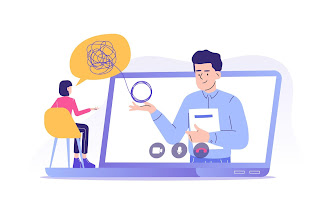The Transformative Impact of Career Counseling and Guidance on School Students
- 1. Self-Discovery
One of the primary benefits of career counseling and guidance is the
opportunity for self-discovery. Students are introduced to various career options, including those they might not have previously considered. Through personality assessments, interest inventories, and skills evaluations, students gain insights into their strengths, weaknesses, passions, and potential areas of growth. This self-awareness is invaluable as it forms the foundation upon which students can make informed career choices.
- 2. Informed Decision-Making
Career counselors and guidance professionals play a pivotal role in equipping students with accurate, up-to-date information about different career paths. They help students explore various industries, educational requirements, job prospects, and earning potentials. Armed with this knowledge, students can make well-informed decisions about their academic pursuits and career goals, reducing the likelihood of regret or career changes later in life.
- 3. Goal Setting
Setting clear and achievable goals is a critical aspect of success. Career counseling empowers students to set realistic short-term and long-term goals. These goals serve as milestones on their journey toward their desired career path. By breaking down their aspirations into manageable steps, students are more likely to stay motivated, focused, and determined to achieve their objectives.
- 4. Academic Success
When students have a clear sense of purpose and direction, they are more likely to excel academically. Career counseling helps students see the relevance of their studies to their chosen career paths, making learning more engaging and meaningful. As a result, they are motivated to perform well in their coursework, leading to improved grades and academic achievements.
- 5. Stress Reduction
The uncertainty surrounding career choices can be a significant source of stress for students. Career counseling provides a supportive environment where students can express their concerns and fears. Counselors can offer guidance on managing stress and anxiety related to academic and career decisions. Reducing this stress can lead to better mental health and overall well-being.
- 6. Skill Development
Career counselors not only help students identify their existing skills but also guide them in developing new ones. They can recommend relevant courses, workshops, and extracurricular activities that can enhance students' skillsets. This skill development not only makes students more competitive in the job market but also boosts their self-confidence.
- 7. Real-World Experience
Internships, job shadowing, and informational interviews are valuable opportunities for students to gain real-world experience and insight into their chosen careers. Career counselors can assist students in finding these opportunities and provide guidance on how to make the most of them. Practical experience can confirm or adjust career choices and increase students' readiness for the workforce.
- 8. Adaptability
In today's rapidly changing job market, adaptability is a crucial skill. Career counseling encourages students to stay open to new possibilities and embrace change. This mindset prepares them to navigate career transitions, learn new skills, and seize emerging opportunities throughout their professional lives.
Conclusion
Career counseling and guidance are integral components of a student's educational journey. They empower students to make informed decisions, set achievable goals, and develop the skills needed to succeed in their chosen career paths. The impact of effective career counseling extends far beyond the school years, influencing a person's life choices and satisfaction for years to come. As educational institutions and communities recognize the importance of career guidance, they contribute to nurturing a more confident, capable, and adaptable future workforce.

Comments